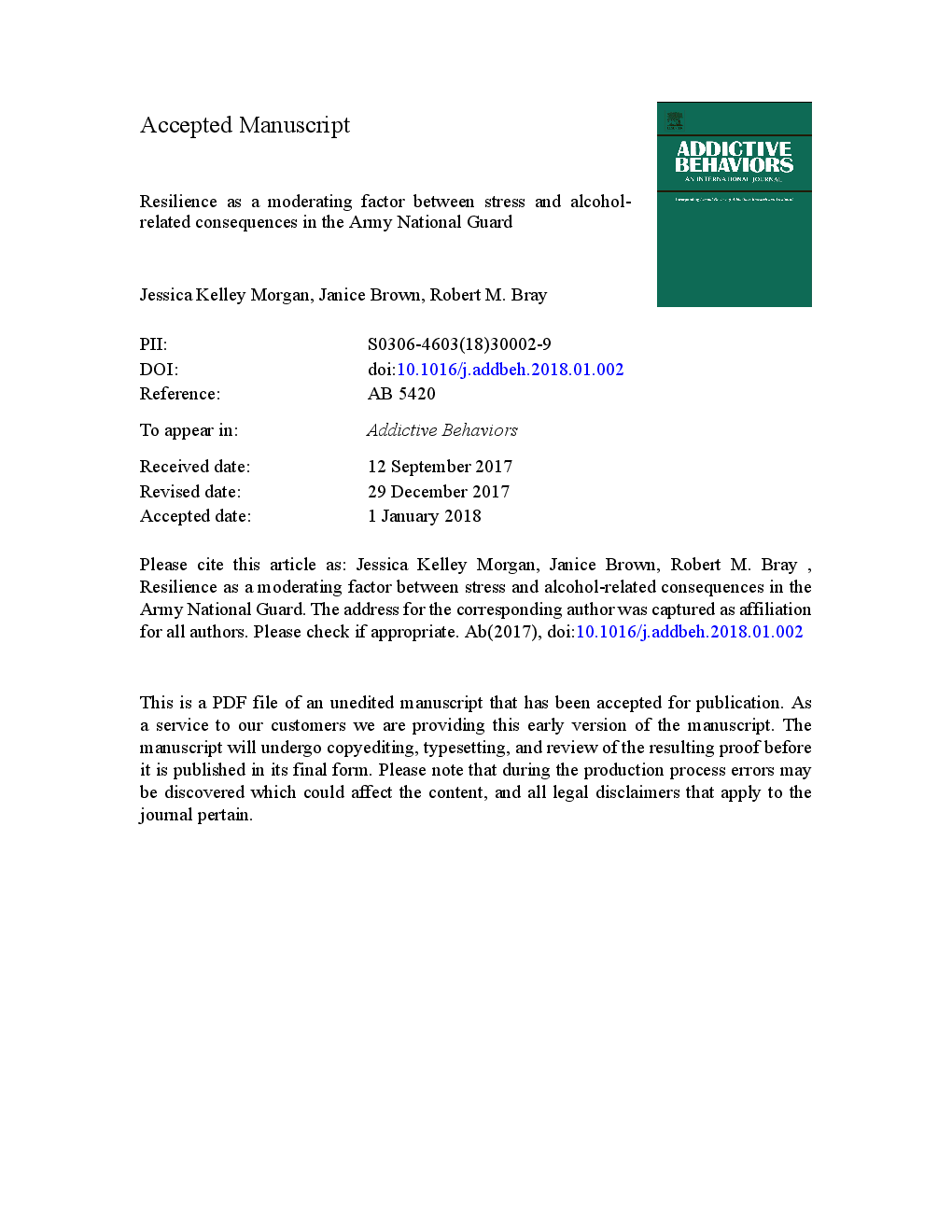ترجمه فارسی عنوان مقاله
انعطاف پذیری به عنوان فاکتور تعدیل کننده ای بین عواقب ناشی از استرس و الکل در گارد ملی ارتش
عنوان انگلیسی
Resilience as a moderating factor between stress and alcohol-related consequences in the Army National Guard
| کد مقاله | سال انتشار | تعداد صفحات مقاله انگلیسی |
|---|---|---|
| 126124 | 2018 | 26 صفحه PDF |
منبع

Publisher : Elsevier - Science Direct (الزویر - ساینس دایرکت)
Journal : Addictive Behaviors, Volume 80, May 2018, Pages 22-27
ترجمه کلمات کلیدی
فشار، الکل، نظامی، گارد ملی، عوامل محافظتی، انعطاف پذیری،
کلمات کلیدی انگلیسی
Stress; Alcohol; Military; National Guard; Protective factors; Resilience;

